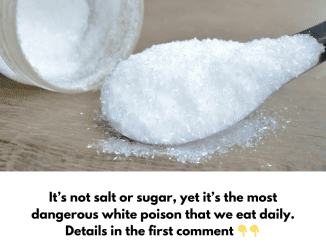The pancreas is an essential organ that plays a vital role in your digestive system, handling everything from blood sugar regulation to fat digestion. Positioned deep within the abdomen, between the stomach and spine, it often goes unnoticed until something goes wrong. Because of its location, symptoms of pancreatic issues can sometimes be subtle and easy to overlook. Recognizing the signs of pancreatic problems and knowing how to support pancreatic health with natural remedies can be powerful tools for managing your well-being.

In this article, we’ll discuss common signs that may indicate pancreatic issues and explore effective home remedies to support a healthy pancreas.
Recognizing the Signs of Pancreatic Problems
Pancreatic issues can manifest in several ways, ranging from digestive discomfort to more serious symptoms that require medical attention. Here are the main signs to watch out for:
1. Persistent Abdominal Pain
Abdominal pain is one of the most common indicators of pancreatic problems. If you’re experiencing pain that begins in the center of your abdomen and radiates to your mid- or lower back, this may indicate pancreatic inflammation, or in severe cases, pancreatic cancer. Acute, sharp pain in the middle of the abdomen that comes on suddenly could be a sign of pancreatitis. If the pain persists for several weeks, it’s essential to speak with a healthcare professional to rule out serious conditions.
2. Nausea After Eating Fatty Foods
Feeling queasy after indulging in fatty foods like burgers, pizza, or avocados may be more than just indigestion. The pancreas produces enzymes that help break down fats, and when it’s not functioning optimally, it may struggle with this task. If nausea frequently follows meals that are high in fat, it could be an early warning sign that your pancreas is under strain.
3. Unexplained Weight Loss
While weight loss is often celebrated, unexplained and rapid weight loss could signal trouble. If your weight loss is accompanied by abdominal pain or digestive issues, it may be due to your pancreas not producing enough enzymes to properly absorb nutrients from food. Weight loss in these cases is typically due to malnutrition, as the body is unable to digest and absorb fats and other nutrients effectively.
4. New Onset of Diabetes or Difficulties Managing Blood Sugar
The pancreas is responsible for producing insulin, the hormone that regulates blood sugar. If you’ve recently been diagnosed with type 2 diabetes and have a healthy diet and lifestyle, or if you’re struggling to control your blood sugar levels, it’s worth discussing pancreatic health with your doctor. Difficulty in managing blood sugar could be due to pancreatic dysfunction, and early intervention is key to preventing further complications.
5. Floating, Pale Stool with an Oily Appearance
Strange changes in stool can also hint at pancreatic issues. If you notice floating, light-colored stools with an oily appearance, this might be a sign that your pancreas isn’t producing enough enzymes to digest fats properly. This symptom, known as steatorrhea, occurs because undigested fats are being excreted in the stool, giving it an oily look and causing it to float.
Home Remedies to Support Pancreatic Health

While it’s essential to seek medical guidance if you suspect any serious issues, there are natural remedies you can incorporate into your daily routine to help support pancreatic health and alleviate symptoms. Here are some tried-and-true methods to maintain a healthy pancreas:
1. Embrace a Plant-Based Diet with Steamed Vegetables
Eating a plant-based diet rich in vitamins, minerals, and antioxidants can help reduce inflammation and support overall pancreatic health. Lightly steaming vegetables like spinach, kale, carrots, and broccoli helps make them easier on your digestive system while retaining nutrients. Consuming a variety of colorful vegetables can provide your body with the essential nutrients it needs to aid pancreatic function.
2. Hydrotherapy to Relieve Pancreatic Discomfort
Hydrotherapy, or alternating hot and cold compresses on the abdomen, can relieve pain associated with pancreatitis. To perform hydrotherapy:
- Lie on your back in a comfortable position.
- Place a warm, damp towel on your abdomen and cover it with a dry towel.
- Rest for five minutes, then switch to a cold, damp towel, covering it with a dry towel again.
- Repeat on your stomach, switching between hot and cold towels.
This process helps stimulate blood flow and reduce inflammation, providing relief from discomfort.
3. Start the Day with a Power Breakfast for Pancreatic Health

Kickstart your morning with a detoxifying breakfast. Begin with a glass of warm water and lemon juice to stimulate your digestive system and help cleanse the pancreas. Follow this with a kiwi and a bowl of oatmeal for a balanced, nutrient-rich breakfast. Drink plenty of water throughout the day, and incorporate antioxidant-rich fruits like berries and leafy greens for added support. Staying hydrated and eating whole foods helps ensure your pancreas has the resources it needs to function properly.
4. Dandelion Root Tea for Cleansing and Detoxification
Dandelion root is a natural detoxifier known for its ability to stimulate bile production, helping your pancreas and liver do their jobs more efficiently. Dandelion root tea can be easily brewed by steeping dried dandelion root in hot water for 10 minutes. This tea can help cleanse the pancreas, improve digestion, and support overall liver health, giving your body a boost in detoxification.
5. Licorice Root for Enhanced Digestion
Licorice root has long been used to soothe digestive issues and promote pancreatic health. This herb stimulates the production of bile, which aids in breaking down food and makes it easier for the body to absorb nutrients. Licorice root tea is a simple way to incorporate this remedy into your diet. Drink it after meals to support digestion and give your pancreas a little extra help with nutrient absorption.
Proactive Pancreatic Health Tips

Alongside these remedies, it’s essential to practice daily habits that support pancreatic health. Here are a few tips to keep in mind:
- Limit Alcohol Intake: Excessive alcohol consumption can strain the pancreas and lead to pancreatitis. Limit your intake to maintain a healthy pancreas.
- Avoid Processed Foods: Foods high in trans fats and refined sugars can place extra stress on your pancreas. Stick to whole, unprocessed foods whenever possible.
- Stay Active: Regular exercise helps your body maintain a healthy weight and reduces the risk of pancreatitis, diabetes, and other pancreatic-related conditions.
Conclusion: Protecting Your Pancreas Naturally
The pancreas is a small but powerful organ, crucial to your body’s digestive and metabolic processes. Recognizing the signs of pancreatic problems early on, such as abdominal pain, digestive issues, and changes in stool, can prompt you to seek the care you need. Additionally, incorporating home remedies like hydrotherapy, dandelion root tea, and a nutrient-rich diet can go a long way in supporting a healthy pancreas.
While these remedies can offer natural support, don’t hesitate to consult a healthcare professional if you experience persistent or severe symptoms. Prioritizing pancreatic health can improve your overall well-being and ensure that your digestive and metabolic systems continue to function optimally. Take proactive steps today to support this essential organ and enjoy the benefits of a healthier, happier body.


